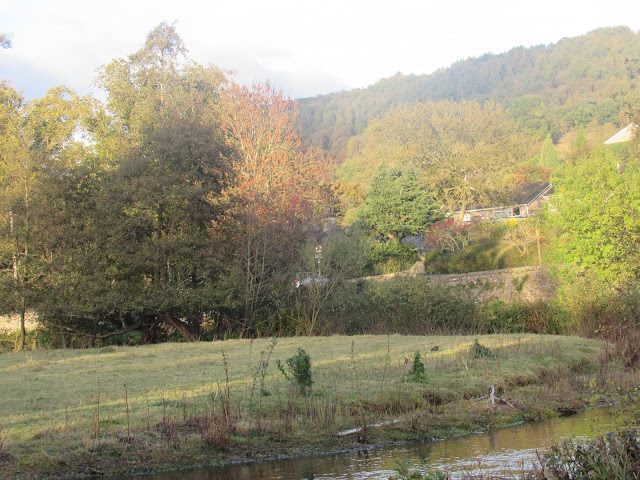 |
| One of Britain's few breeding sites of spotted crakes |
A FULL-time warden is being sought by the RSPB to manage two of its reserves in the Cairngorms.
Insh Marshes, near Kingussie, is said to be Britain’s largest floodplain mire.
In winter, it normally hosts numerous whooper swans and other wetland birds, with crested tits occasionally putting in an appearance in the perimeter woodlands. Hen harriers are also regularly seen.
In summer, the reserve attracts breeding waders, including spotted crakes, and songbirds such as wood warblers and redstarts. Visiting raptors include both eagle species and ospreys.
 |
| Insh Marshes - a world of boggy wonders |
Responsibilities of whoever lands the job will also also include supervising a small team of enthusiasts and oversight of the Ballinlaggan reserve, a smaller site, which is not generally publicised by the RSPB.
The post carries a salary in the region of £28,331 to £30,415 per annum.
More details are available from the RSPB, and the deadline for applications is November 19, 2023.
The job description is below:
About the Role
As one of the Wardens, you will be an essential part of a small team delivering the Insh Marshes and Ballinlaggan management plans, as well as supporting our ambitious Cairngorms Connect restoration programme for the river and floodplain.
The main focus of the role is to take responsibility for implementing the reserve management plans, including habitat and grazing management, to deliver the ecological objectives on the wetland, woodland and grasslands.
In addition, you will undertake and oversee species and habitat survey and monitoring work on site, including annual monitoring of the breeding and wintering wader and wildfowl population and other RSPB priority species, such as Aspen Hoverfly, Dark Bordered Beauty Moth, Water Vole, and Beavers.
The role will also involve oversight trial grazing with an RSPB-owned and managed herd of Konik ponies.
The post-holder will be jointly responsible for the management of the wardening team and volunteers (non-residential and residential) to ensure the delivery of work programmes. This includes ensuring that they are trained and appropriately equipped to work safely.
As Warden, you will ensure high standards of Health and Safety and legal compliance are maintained across the reserve, including the safe use and maintenance of the reserve machinery and equipment used to undertake reserve management.
Additional activities will include:
- Supervising contractors to carry out work on-site safely and legally to deliver the management plan targets.
- Estate management and infrastructure maintenance.
- Ensuring good relations at all times with neighbours, graziers, external organisations and the general public to facilitate delivery of sites and RSPB's objectives.
- Assist the Community Ranger and Community Learning Officer in delivering an annual events programme and supporting school and educational visits.
What we need from you?
We are looking for someone experienced in wetland management with strong ecological knowledge and good practical skills who can deliver to a high standard. You will be organised, resilient, and self-motivated, able to take on almost anything a day on the reserve can throw at you. The work programme at Insh Marshes can be complex and demanding.
You must be a strong team player who collaborates closely with other members of the Insh Marshes Team. You'll have plenty of energy and a willingness to learn and develop as part of your role.
The role will involve remote working, and you must enjoy working outdoors in all weather, as this is Scotland.
Essential knowledge, skills and experience:
- Relevant ecological knowledge (floodplain wetland, mire and open water habitats and woodland /scrub)
- A full driving licence that is valid in the UK
- Agricultural or livestock knowledge where relevant
- Health & Safety applying to site management (e.g. risk assessments)
- Relevant knowledge of compliance requirements (eg agricultural and environmental legislation with particular reference to grazing livestock where relevant)
- Communication and interpersonal skills
- Individual and team management skills
- Estate management
- Organisational including time management and prioritisation
- Problem solving
- Proven track record of reserve or land management
- Biological monitoring
- Working with staff or volunteers
Desirable qualifications, knowledge, skills and experience
- Machinery operations, equipment servicing
- IT and database (Merlin)
Additional information:
This role will involve lone working and working in remote locations. This role will also require occasional weekend, early morning and evening working so will need someone who is able to be flexible.
This is a Permanent Full-Time role for 37.5 hours per week. We are looking to conduct interviews for this position from 4th December 2023. For further information please contact karen.birkby@rspb.org.uk
As part of this application process you will be asked to complete an application form including evidence on how you meet the skills, knowledge, and experience listed above.
We are committed to developing an inclusive and diverse RSPB, in which everyone feels supported, valued, and able to be their full selves. To achieve our vision of creating a world richer in nature, we need more people, and more diverse people, on nature’s side. People of colour and disabled people are currently underrepresented across the environment, climate, sustainability, and conservation sector. If you identify as a person of colour and/or disabled, we are particularly interested in receiving your application. Contact us to discuss any additional support you may need to complete your application.
This role is not eligible for UK Visa Sponsorship - the successful applicant will need to have a pre-existing Right to Work in the UK in order to be offered an employment contract.
The RSPB is an equal opportunities employer. This role is covered by the Rehabilitation of Offenders Act 1974.
 |
| Ospreys, hen harriers and eagles (of two species) are regularly to be seen |



































.JPG)
















